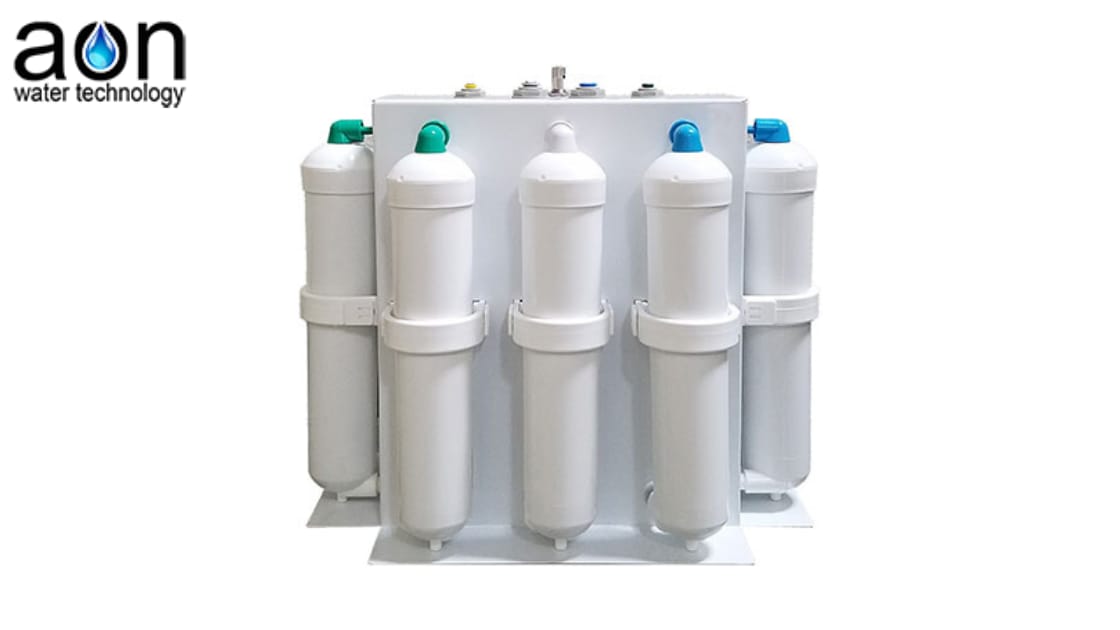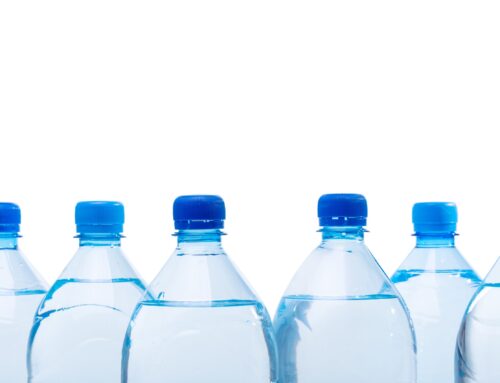While the tap water in Alabama meets federal drinking water standards, it doesn’t necessarily mean it’s completely free of contaminants. Common contaminants such as lead, arsenic, and disinfection byproducts can still be present. They may pose potential health risks to consumers.
This underscores the importance of access to safe drinking water. Reverse osmosis water filtration systems are becoming widely popular for home and commercial use as people become more aware of the need for clean water.
How Do Reverse Osmosis Water Filtration Systems Work?
Reverse osmosis is a process that involves pushing water through a semipermeable membrane at high pressure. The membrane has microscopic pores that allow water molecules to pass through. It efficiently blocks larger particles such as bacteria, viruses, and other contaminants.
Stages of RO filtration:
In a reverse osmosis system, there are typically three to five stages of filtration.
- The first stage involves prefiltration, where water passes through a sediment filter and a carbon filter. They remove larger particles and chlorine that could possibly damage the RO membrane.
- The second stage involves the reverse osmosis membrane. Here, most of the dissolved particles are removed, leaving behind clean water. After filtration, the purified water is stored in a tank until needed.
- Finally, the water passes through a postfilter for final polishing before reaching the faucet.
Benefits of RO Filtration System:
- Highly effective in removing contaminants: It is capable of removing up to 99% of impurities, including bacteria, viruses, heavy metals, and other harmful substances. This makes it ideal for use in areas where the water supply may be contaminated.
- Minimal Maintenance: Reverse Osmosis systems are a one-time investment when it comes to ensuring superior water quality. Once installed, the systems require very little maintenance. However, the pre-filter needs to be changed periodically.
- Cost-effective: Reverse osmosis systems are relatively inexpensive and can save homeowners money over the long term. By removing impurities from the water, the systems can extend the life of appliances such as dishwashers and washing machines. They also eliminate the need for bottled water, saving you a fortune.
- Environmentally friendly: By reducing the need for bottled water, they cut down on the plastic waste generated. They also use less energy than other water treatment methods, making them a more sustainable choice.
Applications:
RO systems have a wide range of applications across different industries and settings. In the residential sector, they are commonly used to treat drinking water and provide clean, safe water for cooking and washing.
In the commercial sector, they are mainly deployed in restaurants, hotels, and other establishments to remove impurities from the water used in food preparation.
RO systems are also used in manufacturing processes to purify wastewater used in production. In the healthcare industry, they help to produce high-purity water for medical procedures and dialysis treatments. Another application of RO systems is in desalination plants. The technique is used to obtain freshwater from seawater, providing a critical source of drinking water in arid regions.
Aon Water provides superior water filtration systems in Huntsville, Alabama. Our Kinetico Reverse Osmosis Drinking Water Systems can remove up to 99% of impurities, including chlorine, lead, and other harmful contaminants.
With our filtration systems, you can enjoy great-tasting, refreshing water right from your kitchen sink.
At Aon Water, we are dedicated to providing you with excellent quality products and exceptional customer service.
Get in touch today to learn more about our water filtration systems in Huntsville & free quote.







